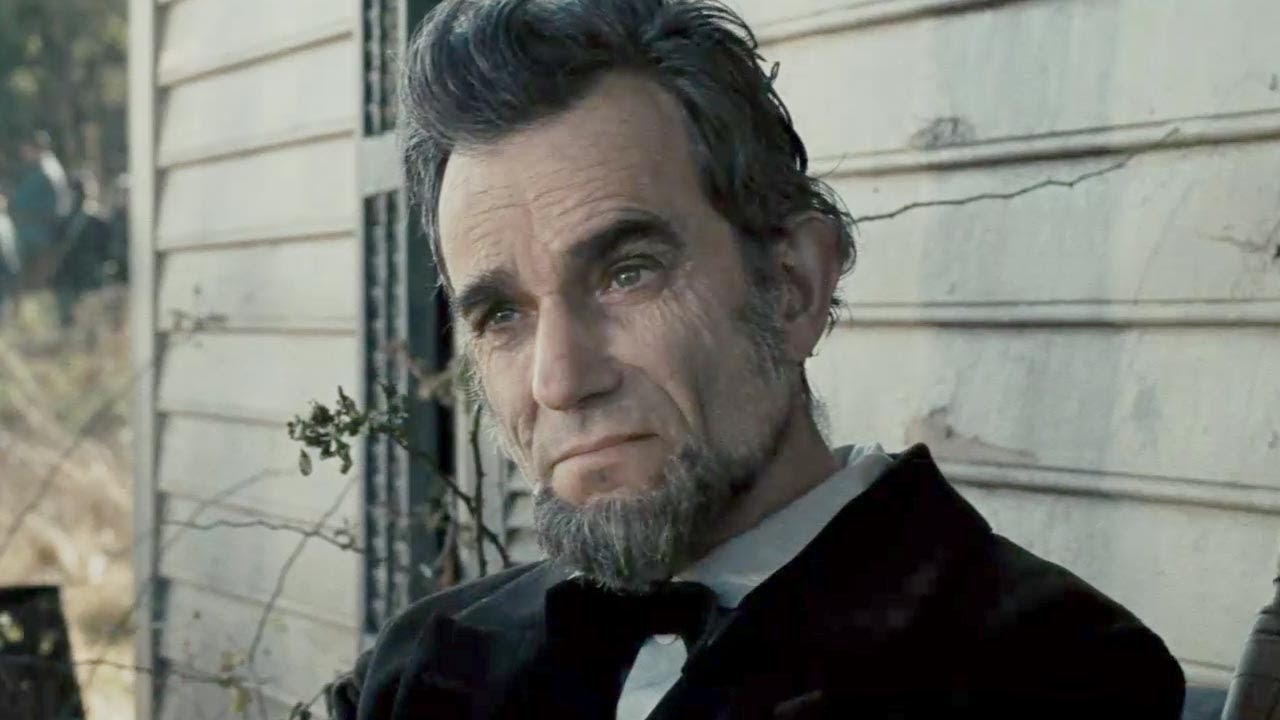
You! Yes, You! Do you like movies? Of course you do. Why else would you be here?
Join me as I rank the works of one of cinema’s most accomplished directors of the silver screen, an auteur of wonderment, a showman of blockbusters, a visionary luminary who can turn his hand to every genre under the sun, often at masterful effect. I would wager there is no film fan today who has not yet been touched by Steven Spielberg’s filmography. I would also say that it was probably one of his films that got you into cinema in the first place. So let’s review all 34 of these works that mark him out to be cinema’s greatest movie maestro.
34. 1941 (1979)
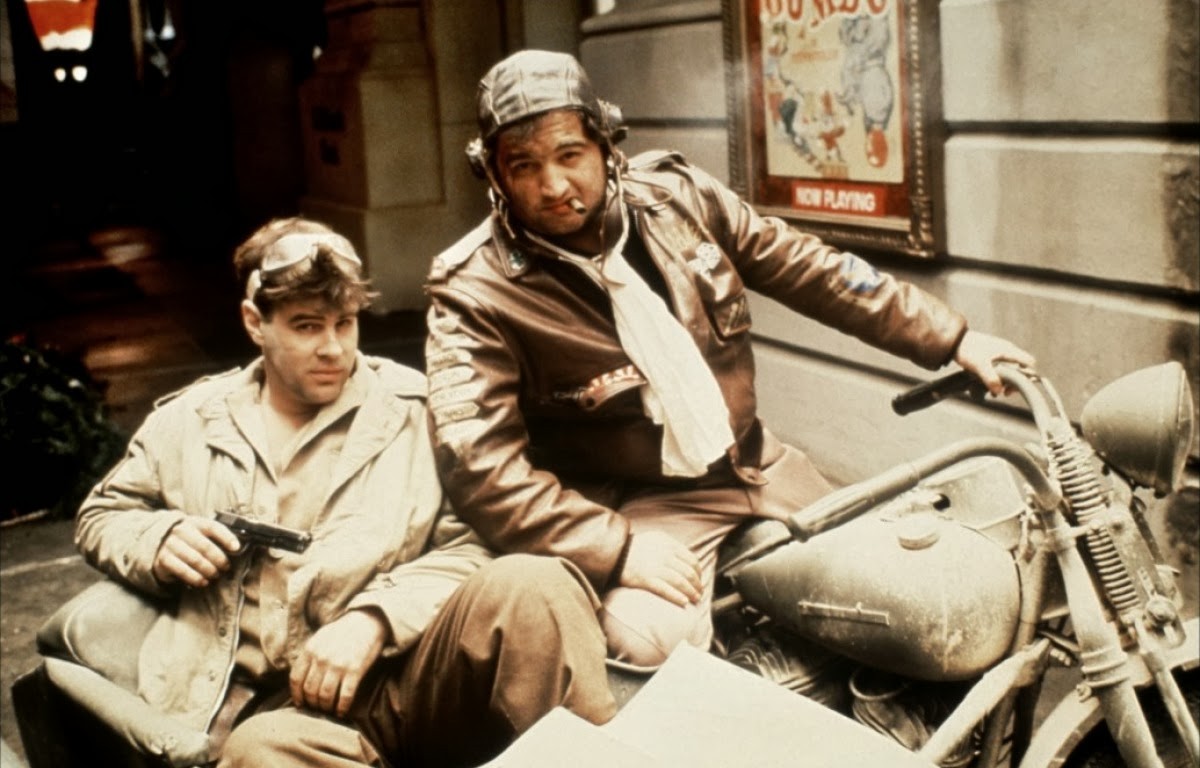
Hysterical Californians prepare for a Japanese invasion in the days after Pearl Harbour in what was a rare bad day at the office for Spielberg. For all its brilliant players, from Toshirô Mifune to John Belushi, the film seems unbalanced and overstuffed with ideas and characters, its satire is stilted and its set-pieces drag while its slapstick stinks.
There is nothing technically wrong with the direction here; it is simply not a very good comedy movie, failing to raise a smile. Everything good in this film has been surpassed in every other Spielberg film. Even collaborator John Williams turns in an acceptable score, nothing as memorable as his usual impressive catalogue. Forgive me, but I would say skip.
33. The Lost World: Jurassic Park (1997)
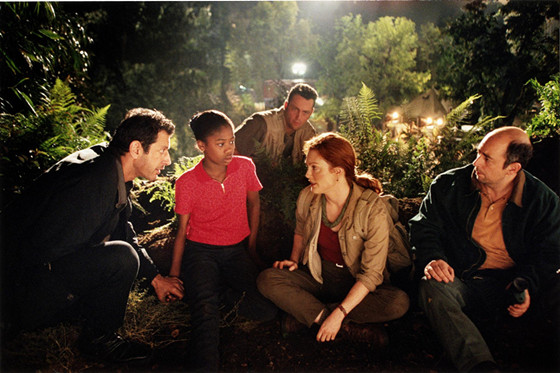
Chaos theorist Ian Malcom (Jeff Goldblum) returns in the second instalment of the Jurassic franchise, this time sent to study dinosaurs on a “Site B’ island, while a rival team approaches with another agenda. There are two things as to why this film is an unsatisfying watch: one is the creatively unnecessary cause for a sequel to Jurassic Park, the second is how The Lost World seems to be a dumbed-down counterpart to the sophisticated and morally speculative story of the original. It is apparent that all the best ideas were used up in 1994, though this film does start off strong with the charmingly meta success of a dinosaur park in both the diegetic and our non-diegetic world, only for the film to turn into a besting of boring baddies and a shoot-em-up at the big scary beasties.
While Jeff Goldblum makes a welcome return to the series, his lack of eccentricity first exhibited in the original film (though perhaps played out as the character’s maturity after what he went through in 1994) is sorely missed in the sequel. It’s a fun blockbuster, nonetheless, a perfect lazy Sunday afternoon viewing, but it lacks Spielberg’s usual flare for awe, wonderment and substance. We’ve seen and done most of these things already; here we are just treading old ground, heading the way of the dino.
32. Twilight Zone: The Movie (1983)
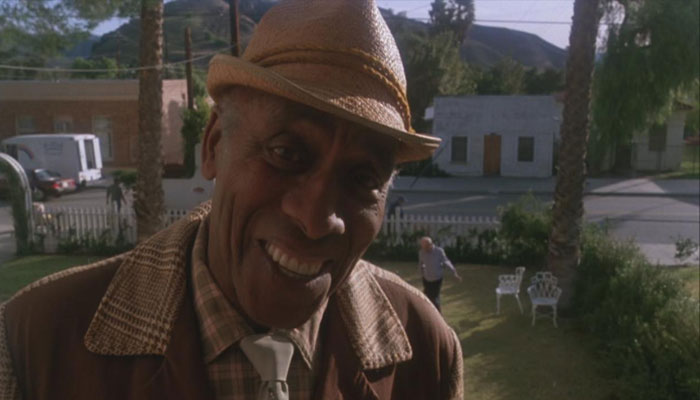
Directing the second segment to this four-storied anthology film, Spielberg reimagines a previous episode of the seminal speculative television series The Twilight Zone with “Kick the Can”. Old man Mr Bloom (Scatman Crothers) coercers his fellow care home residents to remember and embrace the children they once were.
As we have only a quarter of a movie to go on here, Spielberg delivers, from what he is given, a safe yet serviceable instalment. Though at times is may be overtly mawkish, it fulfils that imperative promise that The Twilight Zone was always known for: it gives you a story that makes you think. “Kick the Can” is a tasty speculative treat, with a slipstream twist that is is not too sour or too sweet.
31. The BFG (2016)
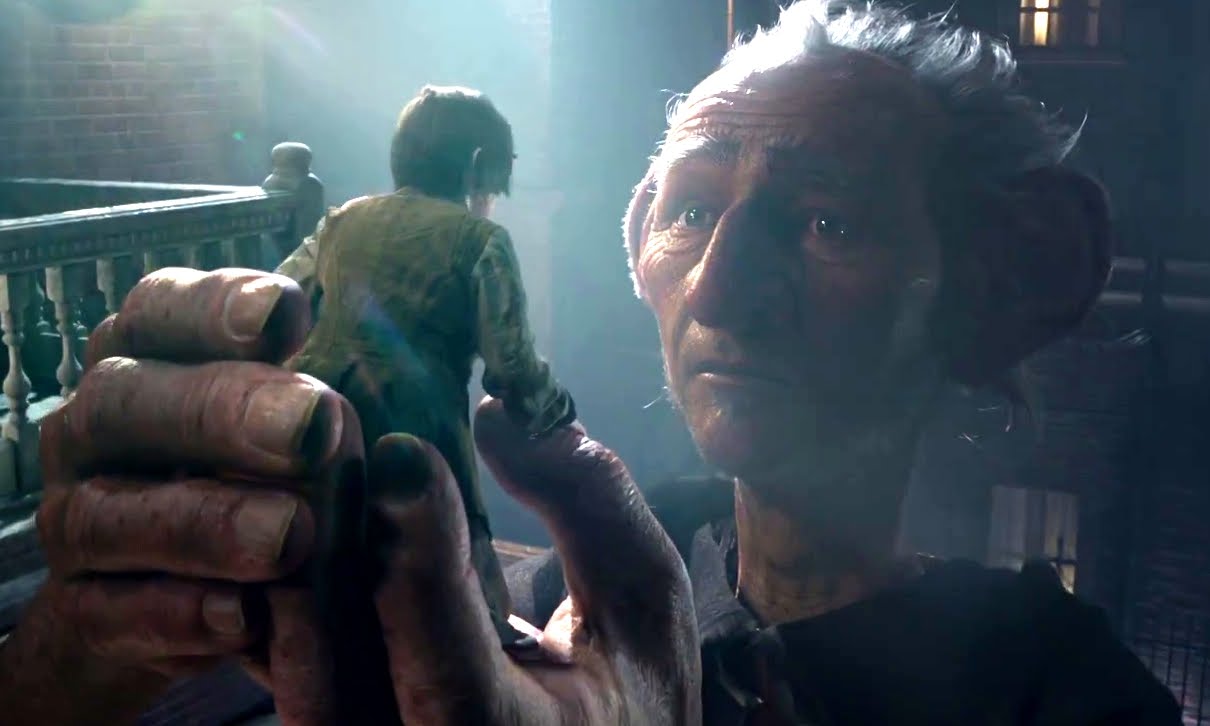
Roald Dahl’s classic children’s story gets the big screen treatment with Mark Rylance starring as the eponymous Big Friendly Giant in what is a fun but uneven adaption. Its lofty ideas have no sense of reality to ground them, not helped with questionable CGI; its cinematography at times fluctuates between the stilted and the grotesque; and the film overall seems ensconced in an atemporal plucky British-ness that makes the superficial surface of a London Postcard seem substantial and more genuine than the plucky sham on screen that we are told to believe in.
What saves the film is of course the great Mark Rylance, who is indeed a very big and very friendly giant (though not as big as the other monstrous brutes of his kind that he must find the courage to stand up to). Rylance is whimsical and eccentric, esoteric and awkward about his shyness and inferiority, capturing a real sense of British-ness that the film aims for. Despite his uncanny motion capture, Rylance’s excellent performance still shines through, making you believe every world of the marvellously mad dialogue first found in Dahl’s writing, all the way down to a snozzcumber being delumptious – it is the saving grace in a film that can otherwise feel disingenuous, unevenly-paced and a tad too saccharine.
30. Munich (2005)
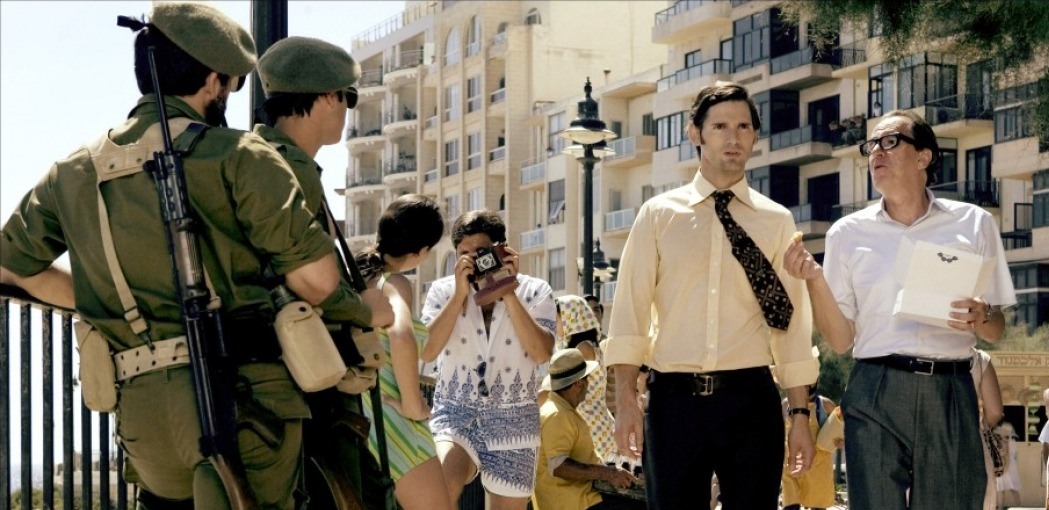
Based on true events, Spielberg brings to life the fallout of the Black September capture and massacre of Israeli athletes at the 1972 Olympics, with five men (Eric Bana, Daniel Craig, Cirán Hinds, Hanns Zischler and Mathieu Kassovitz) chosen to eliminate the people responsible for that fateful day. This is another one of those ‘important’ films in the director’s filmography that I would like to love as much as other critics, but unfortunately its self-inflated ideals fail to match its dragging runtime.
Though the five men listed above have a strong screen presence and charming dynamic, particularly when brought together by a few wonderfully suspenseful scenes, this slow burner is just a bit too slow for my taste, as it might have been for others, with this being one of of the lowest grossing films in Spielberg’s career. However, this film is rich in drama, ethics, and tackles themes of diaspora and mortality with fitting pathos. It handles the true events with delicacy and is a decent watch.
29. Bridge of Spies (2015)
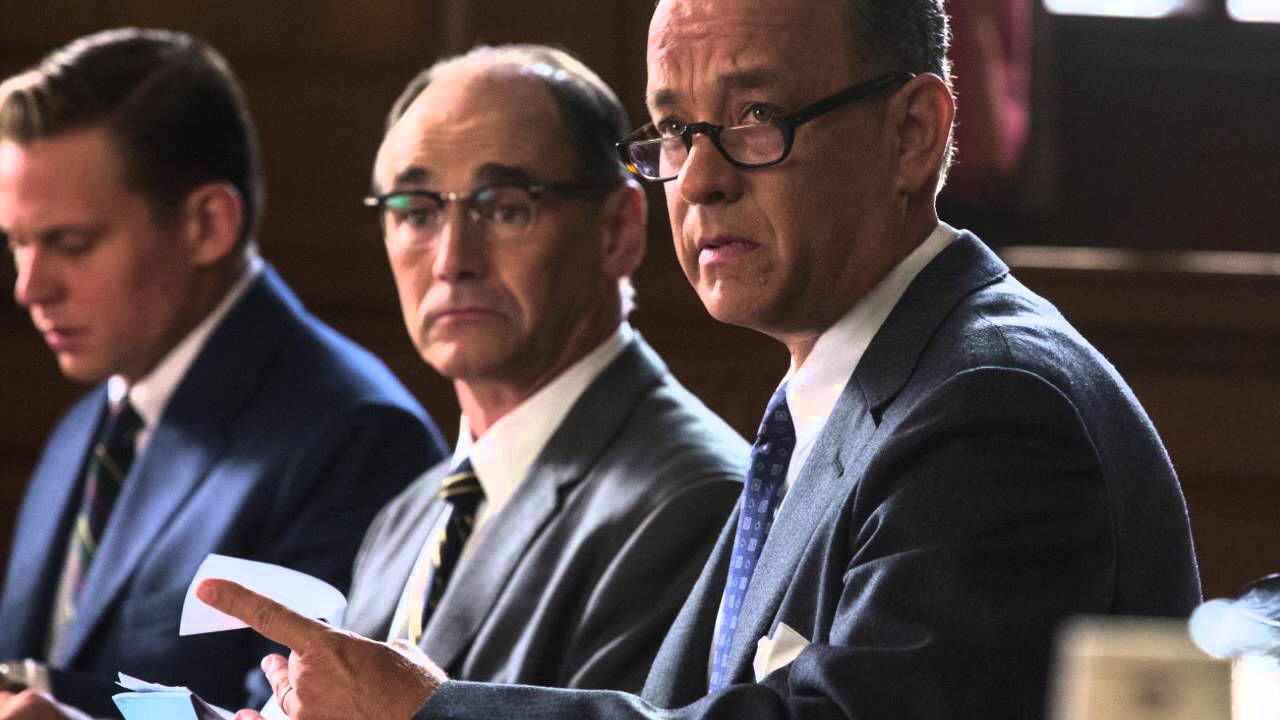
James B. Donovan (Tom Hanks) must negotiate an exchange between alleged KGB spy Rudolf Abel (Mark Rylance) with Francis Powers (Austin Stowell) a US pilot caught in the USSR. Here Spielberg takes a forgotten slice of the Cold War and turns into a fascinating character study that amplifies the ambiguities of the then on-ice conflict that gripped the 20th century, his directorial skills managing to equally grip the viewer who watches this West v. East political chess match, with Hanks and Rylance being principle players in this palpitating game of suspense.
Therefore, justifying its sluggardly pace, Bridge of Spies remains one of Spielberg’s strongest entries in recent years, boasting an ambivalent sense of atmosphere, tension, and an enthralling game of espionage akin to the throes of a le Carré novel.
28. Amistad (1997)
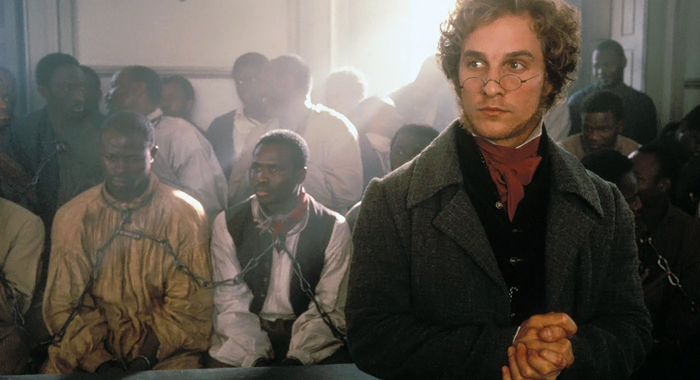
In 1839 the American courts must decide whether Mende captives are slaves or legally free after revolting against their Spanish oppressors and being captured off the coast of Long Island. Atypical from the usual kinetic quickness and golden sun-drenched aesthetic of Spielberg’s other films, Amistad is visually gloomy and languorous in its scenes, letting you stew in the historical, racial and ethical tensions that threaten to pull a country in two.
It’s a film full of bravura performances, too many of which to list, but most notably Djimon Hounsou’s tragic Clinque and Anthony Hopkins’s John Quincy Adams, the ponderous and inspiring former president whose ‘who we are is who we were speech’ is sure to leave a tear in your eye – a crystallisation of the film’s message of the power of each other’s history and the stories we all have ready to tell each other, if only we allow ourselves to stop and listen.
27. The Post (2017)
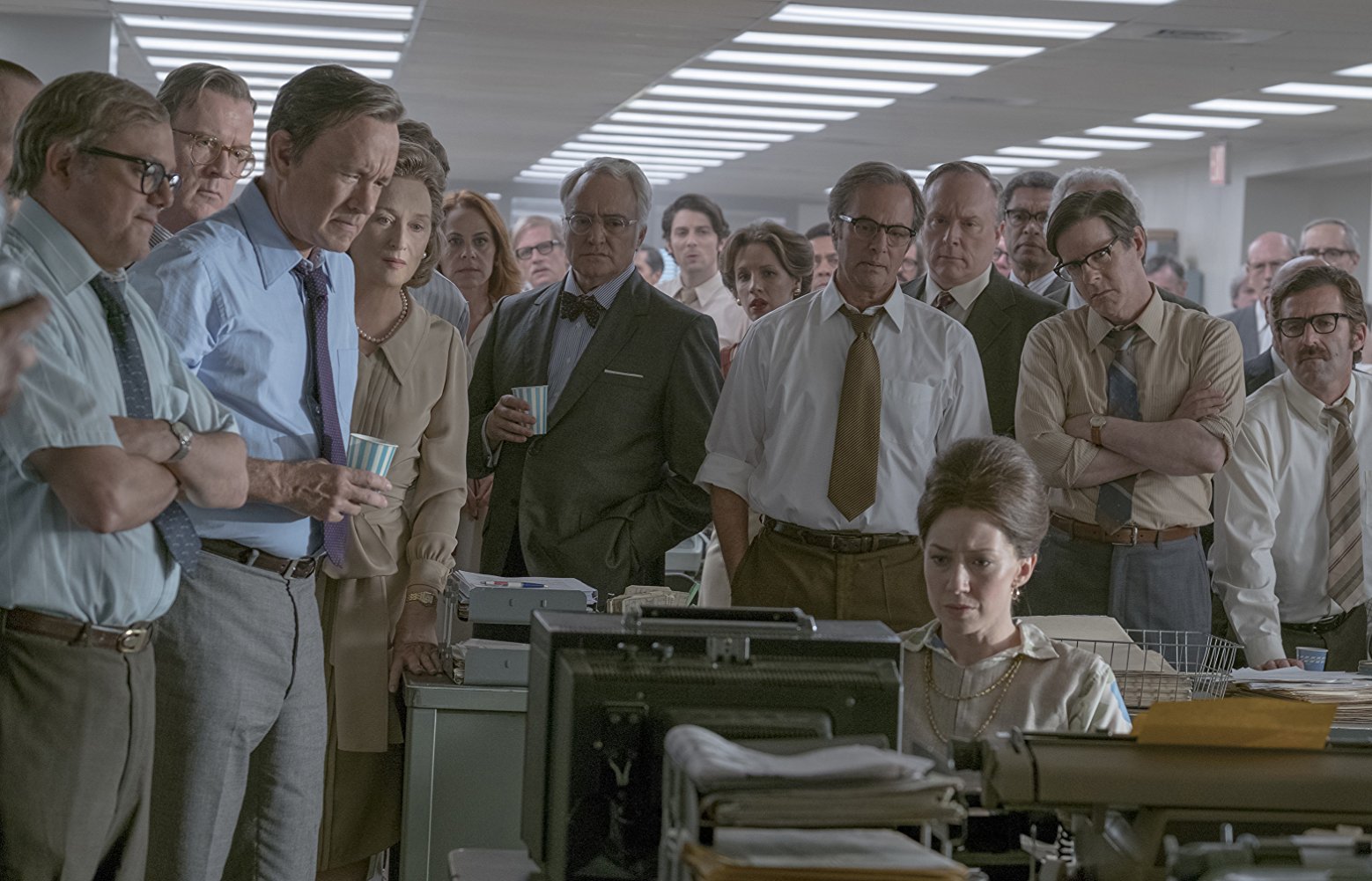
America’s first female newspaper publisher (Meryl Streep) and her editor (Tom Hanks) embark on a battle between press and government in the effort of exposing a cover-up spanning four U.S. Presidents. Spielberg excels in showcasing and lengthening the smallest moments of tension into macrocosms of suspense, whether it be the choice to simply dwell on a conversation as it starts to heat up, or simply capturing the hustle and bustle of journalists, all in their nervous ticks and itchy fingered glory.
It is both gusty and inspiring to see such men and women rallying against a despotic regime and fighting for the liberty of the press – The Post is indeed a hurrah for journalism, freedom of speech and is certainly an apposite film for out mediatised times. The reliable Streep and Hanks deliver layered performances, and together they are thrilling to watch, energising a film that is suited more to those who favour a slow-burner, but if given a chance will be paid off in dividends.
26. Empire of the Sun (1987)
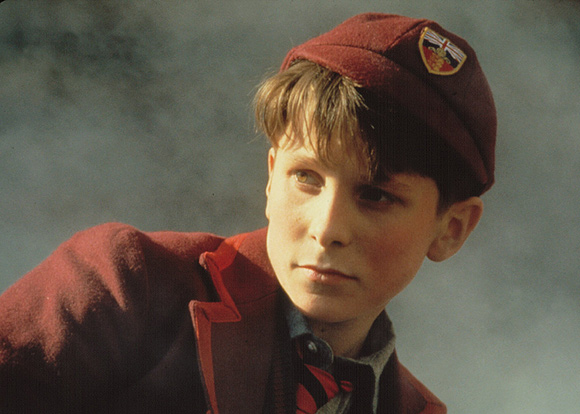
A young Christian Bale plays British Shanghai-based school boy Jim, who gets separated from his wealthy family during WW2, with his struggle to survive leading to his entrapment in a Japanese POW camp. Tom Stoppard’s adaption of J. G. Ballard’s roman a clef novel proves to be an engaging snapshot that depicts one of the darkest moments in humanity’s history. A few times the film’s pace flounders after its lengthy runtime, with a story that occasionally feels non-existent.
That being said, Spielberg captures a deep-rooted verisimilitude when it comes to the grittiness and squalor of the young Jim’s dilapidated world, with the young Bale acting his socks off and being an invigorating protagonist within this brutal Bildungsroman. Yet the film’s real strength is its canny world-building and exemplary set-work, framed in a grainy, tenebrous cinematography – like a Ballard novel it seems less concerned with its hieratic characters and instead rightly plays as a gruesome exhibition of humanity’s destructive Thanatos-complex. Both powerful and poignant, Empire is an exceptional war-film that will stay with you for many years after watching it.
25. Minority Report (2002)
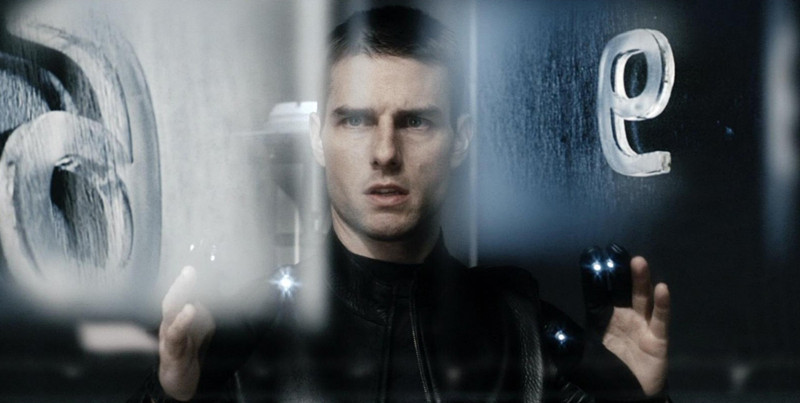
In a future world where special police are able to arrest murderers before they commit the crime, chief John Anderton (Tom Cruise) is accused of a future murder. It’s a neo noir thriller mixed with the vibes of Blade Runner, The Matrix, The Fugitive and La Jette – all thankfully sustained by speculation spun from Philip K. Dick’s short story that shares the same name.
While the film’s aesthetic fluctuates between a seedy dourness one moment and bright futuristic haziness the next, its lengthy runtime is occasionally too much of a slog for the concept while its plot overall seems nebulous in comparison to the director’s usually delineated, tightly-spun plots. Spielberg nevertheless orchestrates galvanising action within a realised world of thrilling uncanniness and surveillance, still proving to have that cerebral flare for the speculative, delving into high heady concepts of free-will v. determinism.
24. Hook (1991)
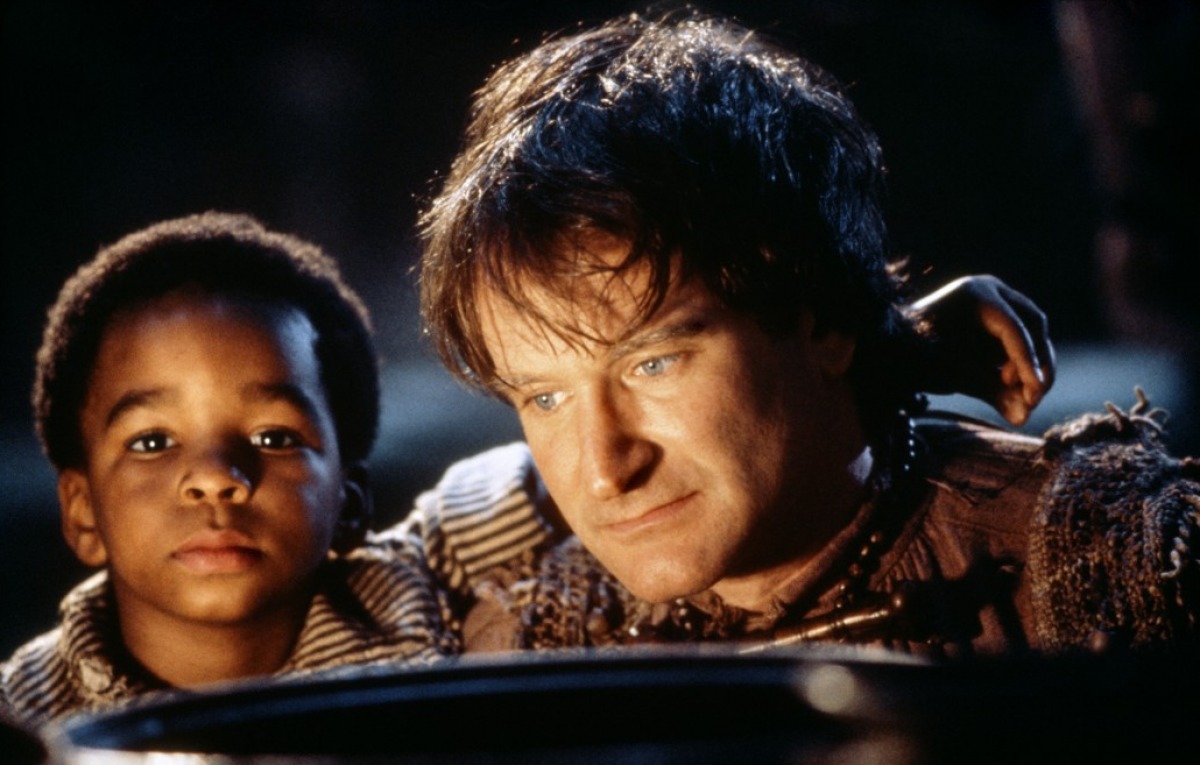
When the children of Peter Pan (Robin Williams) are abducted by Captain Hook (Dustin Hoffman) the now adult leader of the lost boys must return to Neverland in what is a fun family adventure film and a wondrous ode to childhood and the power of the imagination. Though there are a few toe-curling moments of mawkishness when it comes to its child stars, Spielberg wisely puts the focus on the adults, burrowing into one of his favourite themes of fatherhood, this time through a rousing reimagining of the Peter Pan mythos.
Its stunning set design, from the Jolly Rodger pirate ship to the jungled den of the lost boys dances on the line of awesomeness to risible pantomime, but it’s our hero and villain’s performances that anchor this picaresque fun, from Hoffman’s hammy yet layered Captain Hook, to Robin Williams as Pan, playing a man who never wanted to grow up – a perfect casting choice to be sure. Add to that John Williams’s swashbuckling score, and prepare to be swept away.
23. The Terminal (2004)
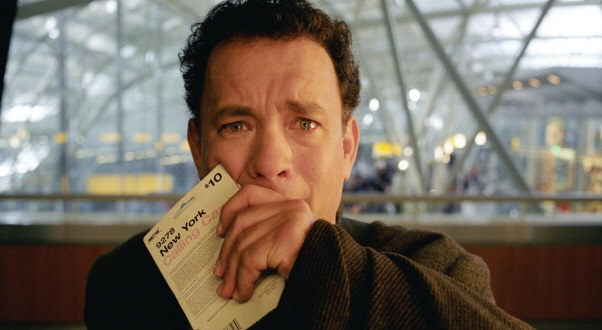
Vicktor Navorski (Tom Hanks) is forced by officials to stay in an airport while a war rages in his country. For a lack of plot (of which this film is unfairly pooh-poohed) Spielberg makes up for with a tender showcase of the universal importance of love and belonging – the eternal humanitarian elements, combined with an unquestionable Can-Do New Yorker attitude that permeates the film. The ever reliable Hanks is on top form as the decent Viktor, surviving months in the deplorable liminal landscapes we all know airports to be – but making use of this time by helping others in his cack-handed but thoroughly civil, bumbling, idiosyncratic way. It’s inspiring and charming to watch.
John Williams nourishes us with an easy going-airport-lounge-esque score that luxuriates with the upbeat and at times sappy tone, but is right at home with a film about kindness and goodness. It offers an unorthodox romance between Hanks and Stewardess Amelia (Catherine Zeta-Jones) a psycho-geographic sense of space, a philosophical spirit, brimming with humour and whimsy, and will make you want to follow Viktor’s lead in being an overall better human being. By far a more endearing film than the highly praised yet slightly stifled serious films that were yet to come in Spielberg’s career.
22. War of the Worlds (2005)
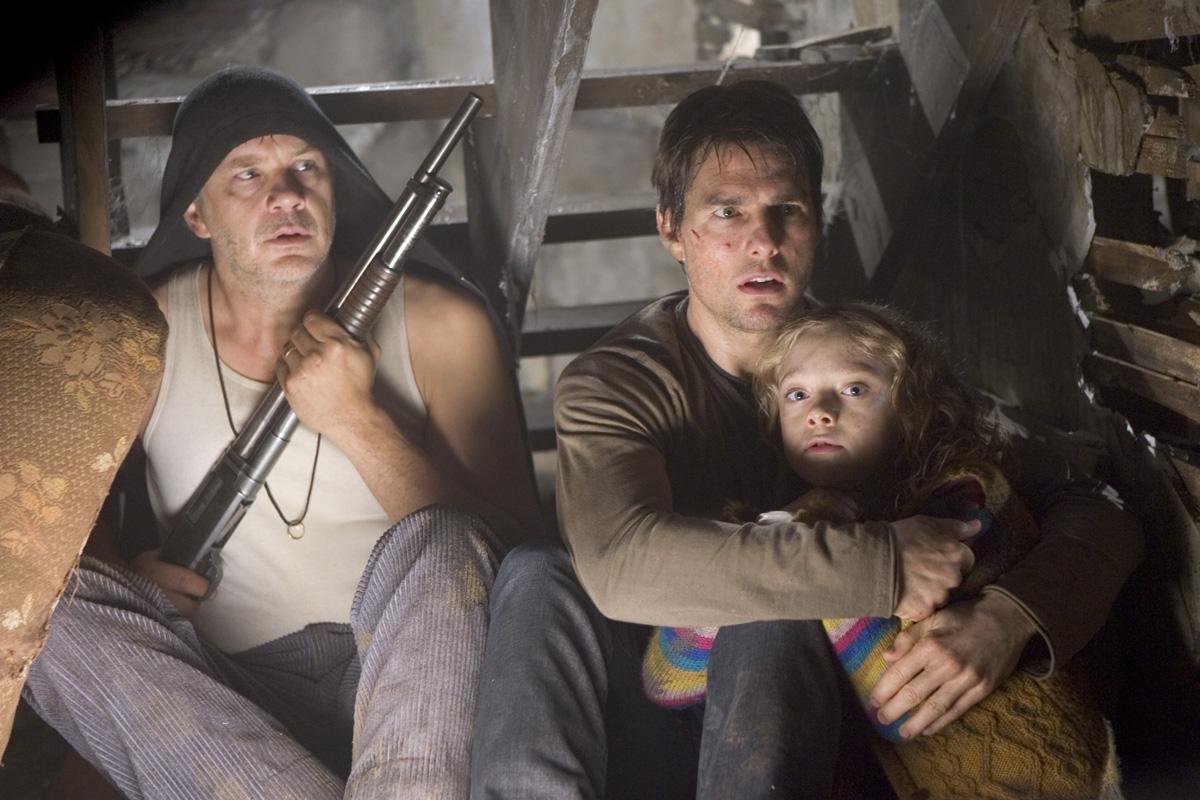
The sentiment that men neither live or die in vain is certainly showcased in this scorching survival thriller that reimagines and extrapolates H. G. Wells’ classic science fiction tale into a modern post 9-11 world, tackling terrorism, gun violence, and ringing more true today in our age of pandemics and wars, whilst also respecting the source material enough to explore the thematic preoccupations Wells had himself, from class-conflicts, broken societal systems, and our shared universal humanity.
Tom Cruise is our blue-collared worker Ray Ferrier, forced to defend his estranged children from an alien invasion. Cruise plays a likeable if crap dad, who nonetheless manages the difficulty of always remaining likable in how quickly he rises to the apocalyptic challenge before him when the going gets extra-terrestrial-tough. Here Spielberg takes his traditional themes of family and love and stretches them into darker unexplored territory – how far would we go to preserve those values, and what do we really hold dear? With thunderous action punctuating this road-trip and a fraught family dynamic that delivers nail-biting dramatic tension – the car scene swamped by other rowdy runaways is truly terrifying – this film, despite its plot holes, is a rousing 2-hours of fun fast thrills.
21. Indiana Jones and the Kingdom of the Crystal Skull (2008)
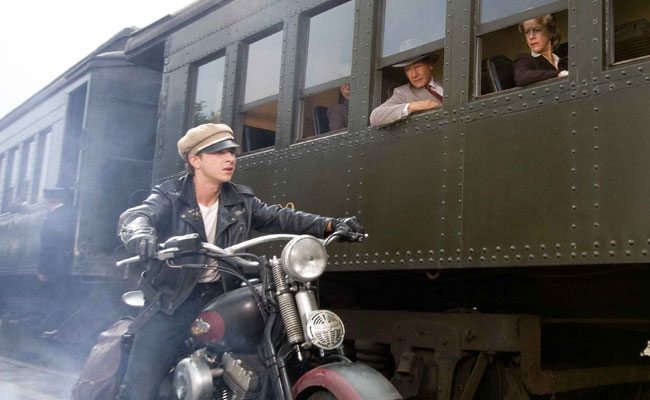
It’s 1957 and archaeologist adventurer Dr. Henry ‘Indiana’ Jones (Harrison Ford) is called back into action, this time squaring off against a soviet plot to uncover the secret behind a mysterious crystal artefact. Though it may be the weakest of the four, do not listen to the naysayers. Crystal Skull is actually a glorious instalment for one of cinema’s greatest franchises. Harrison Ford is back with a seasoned grouchiness and just as good as our whip-cracking action man, while Karen Allen as Marion lights up the screen just as brilliantly as she did in Raiders.
The story was spun by Spielberg’s friend and collaborator George Lucas, fresh off his Star Wars prequels, this time injecting the series with some fruity CGI monkeys and gofers, helping to make this one of the craziest, battiest stories in the franchise. Detractors of Crystal Skull seem to forget that this was written with the intention of being a love letter to 1950s pop culture, full to the brim with leather-jacketed Greasers (a moody Shia LaBeouf as Mutt) the red scare (a crazy Cate Blanchett as a soviet agent) and UFO conspiracy theories.
Added to that were trips dallying forth from Area 51 to alien tombs – all of which was Spielberg’s way of crafting an awesomely zany reprisal of the much mourned B-movie. It’s a film solely made for entrainment that breezes by with imaginative, deadly dangerous scenarios popping up along an exciting globe-trotting adventure through South American quicksand, temples, jungles and graveyards. Regardless of the aging main cast, the fourth and then final film in the series brought millions of new younger fans (this reviewer included) into the cinema, falling in love with Indiana Jones and the magic of Spielberg.
20. The Sugarland Express (1974)
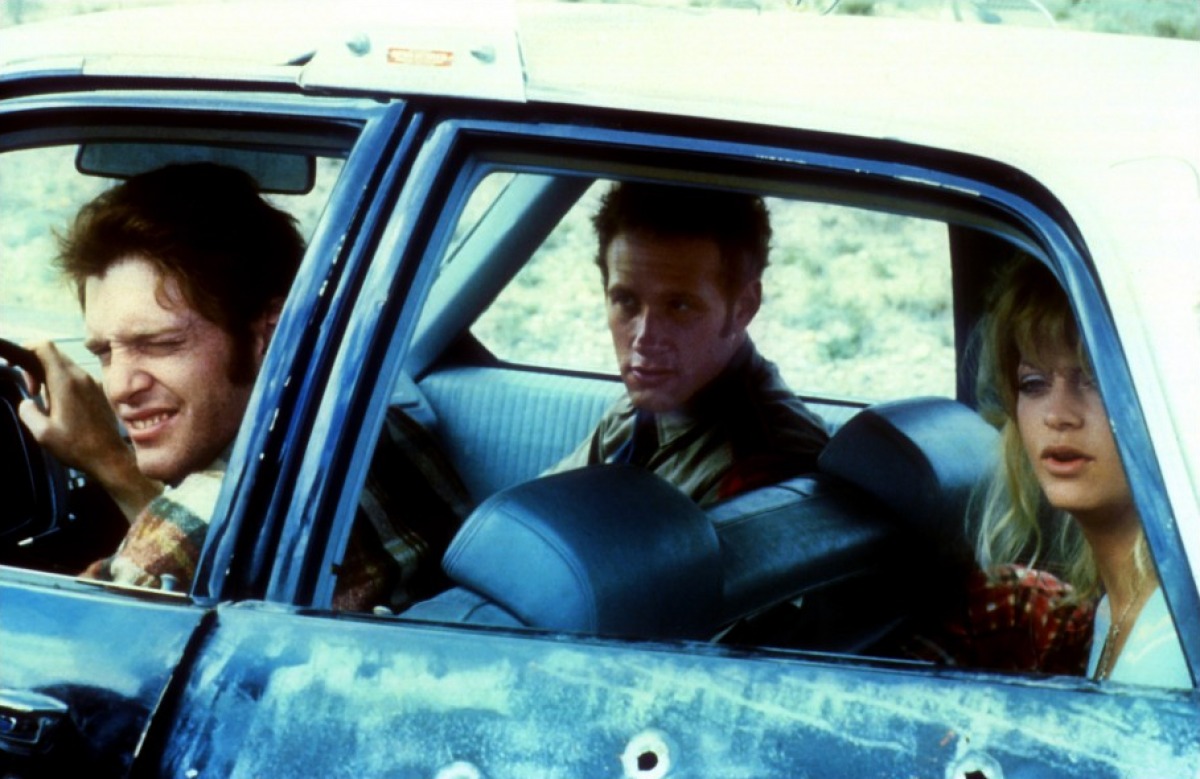
Based on a true event that happened in Texas 1969, Spielberg’s first fully-theatrical feature follows Lou Jean Poplin (Goldie Hawn) busting her husband (William Atherton) out of prison in the bid to kidnap their child from his foster home. What follows is a tour de force of grand theft auto from these two likable hijackers, with Hawn delivering a rich romantic idealism that gains much sympathy when matched against the forces she is battling against. Like the Wile E. Coyote cartoon she unabashedly delights in, with its nugatory chase for the unattainable Road Runner, her endeavour to plunge on with her pilgrimage despite the encroaching world of law-and-order hot on her tail makes her lost cause for a mended home all the more heartfelt. Through her earnestness, one understands that she is merely a woman caught in the wrong social circumstances that have directed her to take “a wrong turn” in life.
Many Spielbergian staples can be seen sprouting in Sugarland that will one day be the director’s specialities in years to come: uprooted families, hot pursuits, and the first in a legendary line of collaborations with the great John Williams, who composed an unorthodox score to his usual orchestral oeuvre, channelling harmonic country aesthetics to the hijinks of our two reckless ruffians. Sugarland Express is an understated and underrated crime drama.
19. Always (1989)
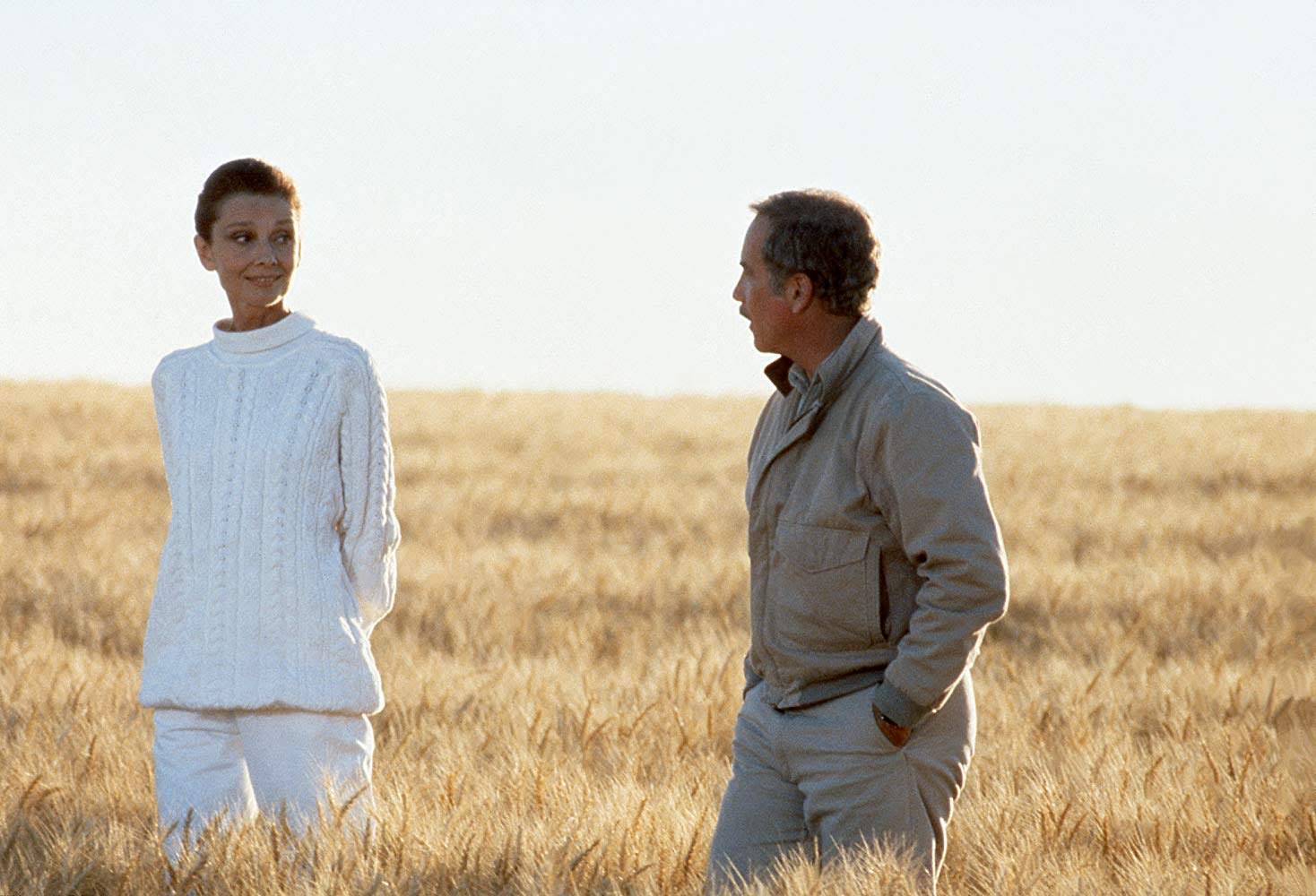
Richard Dreyfuss returns for his third collaboration with Spielberg as the recently deceased reckless aerial firefighter Pete, who must inspire a newer upcoming pilot (Brad Johnson) whilst tasked with watching him fall in love with his sweetheart Dorinda (Holly Hunter) the girlfriend he left behind on earth. So far, this film was a refreshing sidestep from the stratospheric blockbusters of Spielberg’s career. Here the director proved that he could still tell an equally engaging story on a far tinier budget – one that is smaller-scale and rich with intrigue, comedy, drama, and unbound in sentimentality.
Some may slander this films for its soppiness, but this, dear reader, is the point. Spielberg directs a story about stepping out of sentimentality’s shadow and forgoing one’s ego by selflessly helping others. The intertwining rules of the spirit world with our own, with Dreyfus appearing unseen among his loved ones, was funny yet heart-breaking, with Spielberg blocking such scenes with care, innovation and affection, all while garnering stellar supporting performances too, from John Goodman’s affable Al Yackey to Audrey Hepburn as Hap – her last screen performance as the angelic ambassador of a netherworld being an enchanting and worthy last bow in a stellar career.
18. War Horse (2011)
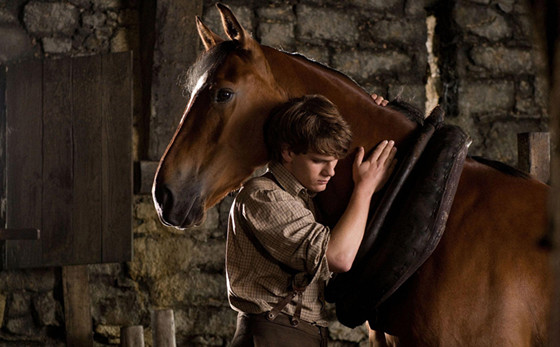
Young Albert (Jeremy Irvine) enlists in WW1 after his beloved horse in sold to the cavalry. This is one of Spielberg’s most emotionally stirring movies, ushering you from a rosy English countryside to blisteringly brutal battle scenes, down and dirty in the trenches of No-Man’s-Land. Additionally, if you’re pining for some of the finest acting from a horse ever committed to screen, this is your flick.
Add to that a smattering of star-studded supporting players (Benedict Cumberbatch, Emily Watson, Tom Hiddleston) a screenplay based on Michael Morpurgo’s heart-wrenching story of friendship and faithfulness, and paired with Spielberg’s capacity to gallop from one set of characters to another as a way of capturing a historic world gone by and the global threat that encroached upon it, War Horse is a real tear-jerker, worthy of its many accolades. At times it is uncomfortable to watch, but rightly so for its truthfully devastating account of the Great War and the men and animals who served in it.